i have problem with docker overlay2 folder.
When I enter du -sj /var/lib/docker/overlay2 in the time of writing it says:
85G overlay2/
And it keeps growing up. I tried to prune system with command like:
docker system prune -a
But output is :
Total reclaimed space: 0B
I also tried to add max-file and max-size to my docker compose. After adding these lines I recreated containers. But problem is still there, can it be solved in any way, just to stop eating disk space ?
EDIT:
docker info:
Server:
Containers: 10
Running: 10
Paused: 0
Stopped: 0
Images: 6
Server Version: 19.03.8
Storage Driver: overlay2
Backing Filesystem:
Supports d_type: true
Native Overlay Diff: true
Logging Driver: json-file
Cgroup Driver: cgroupfs
Plugins:
Volume: local
Network: bridge host ipvlan macvlan null overlay
Log: awslogs fluentd gcplogs gelf journald json-file local \logentries splunk syslog
Swarm: inactive
Runtimes: runc
Default Runtime: runc
Init Binary: docker-init
containerd version: 7ad184331fa3e55e52b890ea95e65ba581ae3429
runc version: dc9208a3303feef5b3839f4323d9beb36df0a9dd
init version: fec3683
Security Options:
apparmor
seccomp
Profile: default
Kernel Version: 4.15.0-91-generic
Operating System: Ubuntu 18.04.4 LTS
OSType: linux
Architecture: x86_64
CPUs: 32
Total Memory: 62.86GiB
Name: machine
ID: TRX2:AJZG:LNJF:UCPW:MQQB:2PLR:R7KM:VHEV:KBOG:IBT4:JX4R:WR6V
Docker Root Dir: /var/lib/docker
Debug Mode: false
Registry: https://index.docker.io/v1/\ Labels:
Experimental: false
Insecure Registries:
127.0.0.0/8
Live Restore Enabled: false\
docker image: (for the security reasons i wont show the names)
TAG IMAGE ID CREATED SIZE
latest 667ac029b200 2 years ago 7.6GB
latest cb9df5aac4ac 2 years ago 12.9GB
latest d445c0adc9a5 3 weeks ago 220MB
latest 227d9f0554d3 2 years ago 1.34GB
latest b80092729008 2 years ago 758MB
latest f32a97de94e1 2 years ago 25.8MB
